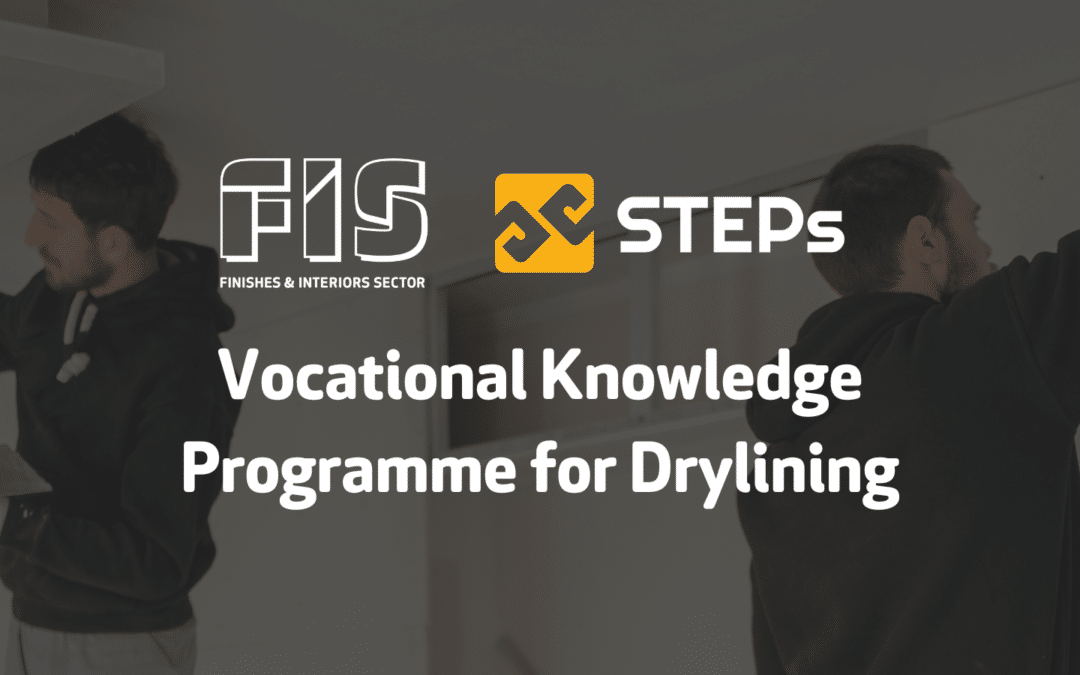
STEPs ahead – supporting the delivery of drylining vocational qualifications and apprenticeships
FIS, in partnership with e-Aptitude, is proud to announce the launch of its FIS STEPs Vocational Knowledge Programme for Drylining. This specialised technical education programme, which was produced by e-Aptitude with support from FIS, has been designed to support training providers in delivering apprenticeships and Vocational Qualifications (VQs) and candidates in achieving their qualifications in Drylining.
Divided into multiple modules, this online training resource provides:
- Access to clear, concise and accessible knowledge training to support candidates’ practical experience.
- Delivers consistent and up-to-date knowledge training.
- Resource for delivery of guided learning in group theory sessions.
- The facility to set tasks for self-learning and test retention of material.
- Tracks and monitors progress of candidates throughout the programme.
- Statistics and reporting data for management of trainees.
FIS Chief Executive Iain McIlwee said:
This is a learning resource that will support consistent delivery of the knowledge elements of both the apprenticeship and in support of those working towards assessment for a vocational qualification. As we move into the new era of competence, the sector must have a more consistent approach to instilling knowledge in anyone joining our workforce and this is a vital step forward for competency in the drylining sector.
Steve Halcrow, director of e-Aptitude, added:
The STEPs team is proud to be partnering with FIS on a project that is so vital for the future of our sector. High quality, consistent knowledge information is a key part of the training for a drylining apprentice and will be a powerful tool for employers and Training Providers delivering there apprenticeship.
FIS promotion of drylining training and our collaboration on this e-learning program, is a major step forward for our industry.
For further information or for any questions please email contact@stepsdigitalfis.co.uk or contact FIS at info@thefis.org or call 0121 707 0077.





